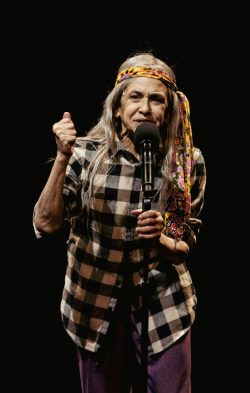 ONE morning in February 1987, very early, we left our hotel in Spindleruv Mlyn by bus, headed for what was marked the “Friendship Path” on the map – the border between what was then Czechoslovakia and Poland, high in the Czech Krkonose mountains. Thick snow was on the ground.
ONE morning in February 1987, very early, we left our hotel in Spindleruv Mlyn by bus, headed for what was marked the “Friendship Path” on the map – the border between what was then Czechoslovakia and Poland, high in the Czech Krkonose mountains. Thick snow was on the ground.
We had taken breakfast with a team of German skiers, and they had insisted we ate raw horseradish and drunk Beckerovka, “to keep us warm for our walk.”
We got off the bus in the dim early light, and set off north-west up the path separating the two countries. Before we had gone more than 200 yards, we were surrounded by armed guards, who appeared out of the gloom and without any common language, made it clear we should return to the bus stop immediately. There they waited with us until the next bus came and escorted us on board, back to the village. So much for friendship, we thought.
 So it was with some surprise that we realised that Complicité’s new play, Drive Your Plow over the Bones of the Dead, is set in or near that very plateau, and that its monolithic and mythical qualities are undiminished, 22 years later, in the eyes of Nobel prizewinning Polish novelist Olga Tokarczuk, on whose most famous book the play is based.
So it was with some surprise that we realised that Complicité’s new play, Drive Your Plow over the Bones of the Dead, is set in or near that very plateau, and that its monolithic and mythical qualities are undiminished, 22 years later, in the eyes of Nobel prizewinning Polish novelist Olga Tokarczuk, on whose most famous book the play is based.
Describing a Complicité play is always a challenge. This one is part murder mystery, part fairytale. Depending on your perspective it might be a plea for veganism, a protest against authoritarianism and big business, or the ravings of a peculiar old woman and her even more peculiar neighbours. What’s certain is that it revolves around Janina Duszejko, a solitary former teacher who has taken a job looking after the summer residences of the wealthy from the city during the bitter months of winter, with only two dogs for company.
 It all starts when one of her neighbours is found dead. Going to inspect the body, she and another neighbour encounter the bright, staring eyes of deer outside the house. And then they find that he has choked on a deer bone from the animal he had killed and cooked.
It all starts when one of her neighbours is found dead. Going to inspect the body, she and another neighbour encounter the bright, staring eyes of deer outside the house. And then they find that he has choked on a deer bone from the animal he had killed and cooked.
Simon McBurney’s cast of ten actors is led by the extraordinary Kathryn Hunter, a diminutive performer known for her physical theatre skills and her abilities to shape-shift. She’s never off stage for the more than three hour performance, with most of her dialogue given into a microphone centre stage. Every moment is magnetic, as she talks about food, literature, politics, animal welfare, sport, science, myths and horoscopes.
Around her are animals, politicians, rich women, lonely men, thugs, police, shop owners and heavily armed civilians.
 The audience (packed into Bristol Old Vic for the run, which continues until 11th February before its national and international tour), is buffeted from magic realism to terrifying totalitarian muscle flexing, from hilarious stories to opaque flickers of memory. There is a narrative line, but you will be lucky to follow it until the ending – and no spoilers here!
The audience (packed into Bristol Old Vic for the run, which continues until 11th February before its national and international tour), is buffeted from magic realism to terrifying totalitarian muscle flexing, from hilarious stories to opaque flickers of memory. There is a narrative line, but you will be lucky to follow it until the ending – and no spoilers here!
 The adaptation is a masterpiece of allusion, technical brilliance, dressing-up box costumes, blinding enlightenment and very loud noise, all set in the quiet menace of the dark forest on the mountain.
The adaptation is a masterpiece of allusion, technical brilliance, dressing-up box costumes, blinding enlightenment and very loud noise, all set in the quiet menace of the dark forest on the mountain.
It is indescribably unmissable. See it if you can in this year, which, only four weeks in, promises extraordinary theatrical riches.
GP-W